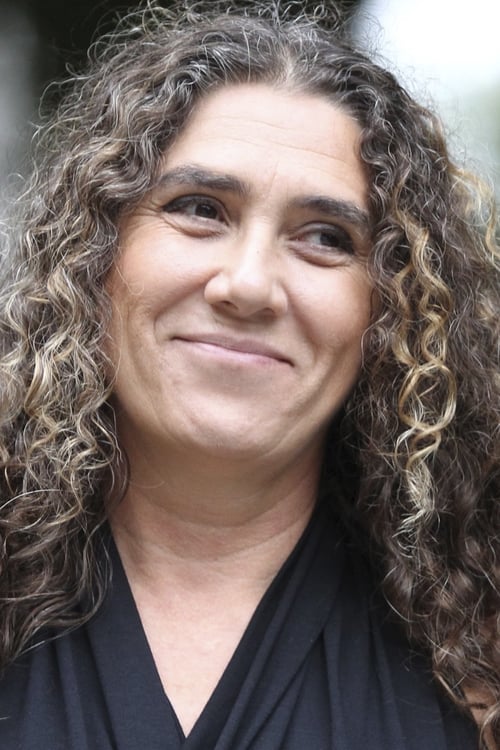Anna Muylaert
出生 : 1964-04-21, São Paulo, São Paulo, Brazil
略歴
Anna Muylaert (born April 21, 1964) is a Brazilian screenwriter and television and film director. She is known for her fourth film, The Second Mother, which entered the 2015 Sundance Film Festival and Panorama at Berlinale film festival, where the film received the Audience Award.
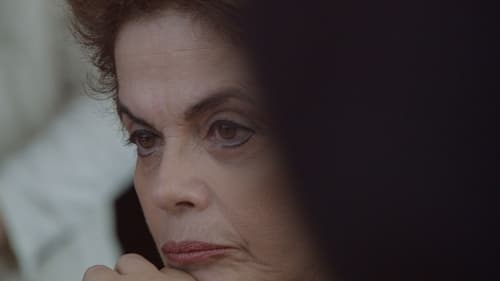
Editor
The film narrates, from an intimate point of view, the daily life of President Dilma Rousseff in her official residence, the Palácio do Alvorada, while awaiting the verdict of the impeachment process. Portraying the hallways of the palace, designed by Oscar Niemeyer, we see the coming and going of political meetings, the daily routine of the kitchen, the exchange of guards, whispers and phone calls. We feel the growing tension of officials, advisers and former ministers.

Director
The film narrates, from an intimate point of view, the daily life of President Dilma Rousseff in her official residence, the Palácio do Alvorada, while awaiting the verdict of the impeachment process. Portraying the hallways of the palace, designed by Oscar Niemeyer, we see the coming and going of political meetings, the daily routine of the kitchen, the exchange of guards, whispers and phone calls. We feel the growing tension of officials, advisers and former ministers.
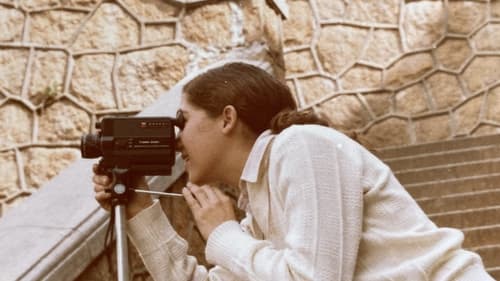
Producer

Writer

Director

In 1965, a year after the military coup in Brazil, an oasis of freedom opened in the country's capital. The Brasília Film Festival: a landmark of cultural and political resistance. Its story is that of Brazilian cinema itself.
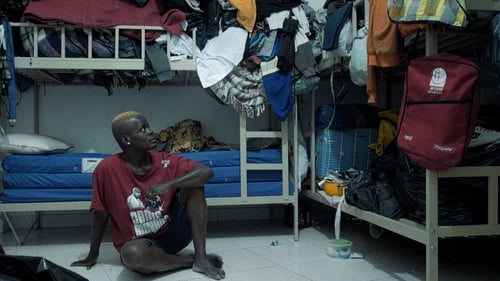
Producer
A gritty observation of precarious romance, debauchery, and heartbreak between addicts living in a São Paulo hotel.

Associate Producer
Elias is a handsome young deputy manager in a garment factory in São Paulo. When he’s not working, he enjoys casual encounters in the big city. The arrival of a young African, Fernando, on the production line piques his interest and Elias finds himself increasingly drawn into socialising with his work colleagues.
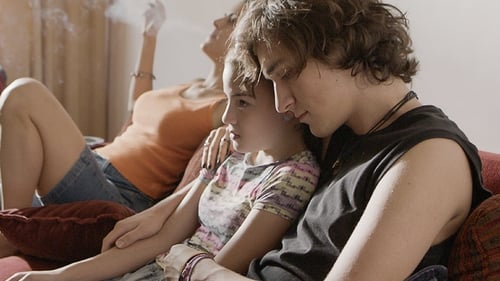
Producer
Pierre is seventeen and in the middle of puberty. He plays in a band, has sex at parties and secretly tries on women’s clothing and lipstick in front of a mirror. Ever since his father’s death, his mother Aracy has looked after him and his younger sister Jacqueline, spoiling them both. But when he discovers that she stole him from a hospital when he was a new born baby, Pierre’s life changes dramatically. In her new film, director Anna Muylaert explores the mother-child relationship through the eyes of a rebellious son whose whole world unravels overnight.

Screenplay
Pierre is seventeen and in the middle of puberty. He plays in a band, has sex at parties and secretly tries on women’s clothing and lipstick in front of a mirror. Ever since his father’s death, his mother Aracy has looked after him and his younger sister Jacqueline, spoiling them both. But when he discovers that she stole him from a hospital when he was a new born baby, Pierre’s life changes dramatically. In her new film, director Anna Muylaert explores the mother-child relationship through the eyes of a rebellious son whose whole world unravels overnight.

Director
Pierre is seventeen and in the middle of puberty. He plays in a band, has sex at parties and secretly tries on women’s clothing and lipstick in front of a mirror. Ever since his father’s death, his mother Aracy has looked after him and his younger sister Jacqueline, spoiling them both. But when he discovers that she stole him from a hospital when he was a new born baby, Pierre’s life changes dramatically. In her new film, director Anna Muylaert explores the mother-child relationship through the eyes of a rebellious son whose whole world unravels overnight.
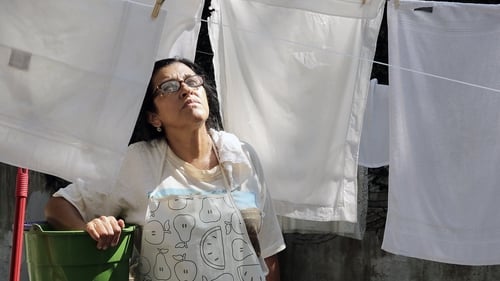
Producer
After leaving her daughter Jessica in a small town in Pernambuco to be raised by relatives, Val spends the next 13 years working as a nanny to Fabinho in São Paulo. She has financial stability but has to live with the guilt of having not raised Jessica herself. As Fabinho’s university entrance exams approach, Jessica reappears in her life and seems to want to give her mother a second chance. However, Jessica has not been raised to be a servant and her very existence will turn Val’s routine on its head. With precision and humour, the subtle and powerful forces that keep rigid class structures in place and how the youth may just be the ones to shake it all up.

Screenplay
After leaving her daughter Jessica in a small town in Pernambuco to be raised by relatives, Val spends the next 13 years working as a nanny to Fabinho in São Paulo. She has financial stability but has to live with the guilt of having not raised Jessica herself. As Fabinho’s university entrance exams approach, Jessica reappears in her life and seems to want to give her mother a second chance. However, Jessica has not been raised to be a servant and her very existence will turn Val’s routine on its head. With precision and humour, the subtle and powerful forces that keep rigid class structures in place and how the youth may just be the ones to shake it all up.

Director
After leaving her daughter Jessica in a small town in Pernambuco to be raised by relatives, Val spends the next 13 years working as a nanny to Fabinho in São Paulo. She has financial stability but has to live with the guilt of having not raised Jessica herself. As Fabinho’s university entrance exams approach, Jessica reappears in her life and seems to want to give her mother a second chance. However, Jessica has not been raised to be a servant and her very existence will turn Val’s routine on its head. With precision and humour, the subtle and powerful forces that keep rigid class structures in place and how the youth may just be the ones to shake it all up.

The series “Mundo da Lua”, produced by TV Cultura in the 90s in Brazil, returns in another logbook by Lucas Silva e Silva. The documentary “Diário de Bordo de uma Viagem à Infância” is the meeting of those who were in front of and behind the cameras, telling the backstage of the series, and also the fans who followed on TV.

Screenplay
Produced for TV Cultura within the project Telefilmes IV: Music and City, this made-for-TV film follows the story of Erica, a 14-year-old teenager growing up in Brazil, who has to learn how to deal with her British mother who is going off the rails. Living amidst an anxiety that switches between fear and love for her mother, Erica tries to find her way in a ship that seems to be sinking rapidly. It is in this moment that she picks up a guitar, and in her relationship with it, finds a way to re-shape her reality.

Director
Produced for TV Cultura within the project Telefilmes IV: Music and City, this made-for-TV film follows the story of Erica, a 14-year-old teenager growing up in Brazil, who has to learn how to deal with her British mother who is going off the rails. Living amidst an anxiety that switches between fear and love for her mother, Erica tries to find her way in a ship that seems to be sinking rapidly. It is in this moment that she picks up a guitar, and in her relationship with it, finds a way to re-shape her reality.

Writer
A high class lady from Brazil falls into a fake kidnapping scam when she answers a stranger’s phone call. Believing that one of her daughters has been kidnapped, she is guided by a terrifying voice for 12 hours through the cities of Sao Paulo and Rio de Janeiro.

Director
A high class lady from Brazil falls into a fake kidnapping scam when she answers a stranger’s phone call. Believing that one of her daughters has been kidnapped, she is guided by a terrifying voice for 12 hours through the cities of Sao Paulo and Rio de Janeiro.

Writer
In the '40s, three brothers decide to live a great adventure and enlisting in the Roncador-Xingu Expedition, which has a mission to tame the Central Brazil. The Villas Boas brothers: Orlando, 27, Claudius, 25, and Leonardo, 23, engage in a fantastic and incredible saga. Soon start to lead the expedition that opens new paths 1,500 km, navigates over 1,000 miles of unspoilt rivers, opens 19 airfields for airplanes Army, gives rise to the creation of 43 towns and 14 make contact with wild Indian tribes, unknown, as the Xavante, courageous and feared warriors, no casualties on both sides. This adventure allows the Villas Boas brothers the creation of the Xingu National Park, the first major Amerindian reservation in Brazil, the size of Belgium, transforming them into true contemporary heroes.

Producer
In São Paulo, Brazil, the lonely 40-something guitar teacher Baby lives a tedious life in a low middle-class apartment. She is addicted to her only companions: cigarettes. Baby has a constant conflict with her two sisters, over a couch she inherited from their deceased aunt. When Max, a restaurant musician, moves to the next door apartment, Baby has a crush on him and sees a chance to have a life again. Soon they start having a love affair, and Baby decides to quit smoking. However, her abstinence will be tough to deal with, when she notices Max still misses his ex-wife.

Writer
In São Paulo, Brazil, the lonely 40-something guitar teacher Baby lives a tedious life in a low middle-class apartment. She is addicted to her only companions: cigarettes. Baby has a constant conflict with her two sisters, over a couch she inherited from their deceased aunt. When Max, a restaurant musician, moves to the next door apartment, Baby has a crush on him and sees a chance to have a life again. Soon they start having a love affair, and Baby decides to quit smoking. However, her abstinence will be tough to deal with, when she notices Max still misses his ex-wife.

Director
In São Paulo, Brazil, the lonely 40-something guitar teacher Baby lives a tedious life in a low middle-class apartment. She is addicted to her only companions: cigarettes. Baby has a constant conflict with her two sisters, over a couch she inherited from their deceased aunt. When Max, a restaurant musician, moves to the next door apartment, Baby has a crush on him and sees a chance to have a life again. Soon they start having a love affair, and Baby decides to quit smoking. However, her abstinence will be tough to deal with, when she notices Max still misses his ex-wife.

Writer
Three metropolitan stories entwine in São Paulo. Would-be actress Marina arrives in the city looking for independence, falls madly in love with Justine, a bisexual rock singer, and is swept up into her wild, edgy lifestyle. Marina shares a flat on Avenida Paulista with Suzana, a mysterious transsexual lawyer who begins a relationship with a male colleague who is unaware of her condition. Jay lives a few floors above them. He is a frustrated writer trying to give a meaning to his life by idealizing a stunningly beautiful prostitute, whom he transforms into a sort of muse. Following the frenetic pace of the city, the three "Paulista" characters will experience the euphoria of passion and its downside.

Producer

Writer
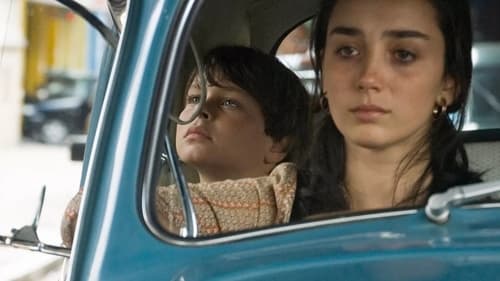
Screenplay
A boy is left alone in a Jewish neighborhood in the year of 1970, where both world cup and dictatorship happen in Brazil.

Writer
The story of Orisbela, a young and religious woman who comes from Portugal to Brazil to marry Francisco de Albuquerque, a rude sugar-cane plantation owner, in 1570.

Writer
Durval and his mother Carmita live at the back of "Durval Discos", a record store they own in São Paulo, specializing in vinyl records. They lead a boring and unattractive life, until the day Durval hires a maid, Celia, to help his mother with the housekeeping. However, on her second day, Celia goes away leaving a 5-year-old child behind, Kiki, and a note promising to be back in a couple of days. Durval and Celia are charmed by the child at first, but soon they see some sad news about Celia and Kiki on TV that will change the whole situation.

Director
Durval and his mother Carmita live at the back of "Durval Discos", a record store they own in São Paulo, specializing in vinyl records. They lead a boring and unattractive life, until the day Durval hires a maid, Celia, to help his mother with the housekeeping. However, on her second day, Celia goes away leaving a 5-year-old child behind, Kiki, and a note promising to be back in a couple of days. Durval and Celia are charmed by the child at first, but soon they see some sad news about Celia and Kiki on TV that will change the whole situation.

Writer
A young wizard must create new spells in his magic book before the planets align. His uncle and aunt, powerful mages themselves, help him achieve that. Based on the award-winning Brazilian TV series.

Writer

Associate Producer

Screenplay

Director

Director
A cinematographic poem made of a long travelling by fifteen characters, in search of an asynchronous marriage with sound.

Writer
Set in an imaginary world where gender stereotypes are inverted, that is, women occupy positions of power while men are raised to be socially submissive. Emerging issues are addressed, not just machismo, but racism, classism and corruption, rooted in the patriarchal culture of Brazil and the world.

Director
Set in an imaginary world where gender stereotypes are inverted, that is, women occupy positions of power while men are raised to be socially submissive. Emerging issues are addressed, not just machismo, but racism, classism and corruption, rooted in the patriarchal culture of Brazil and the world.

